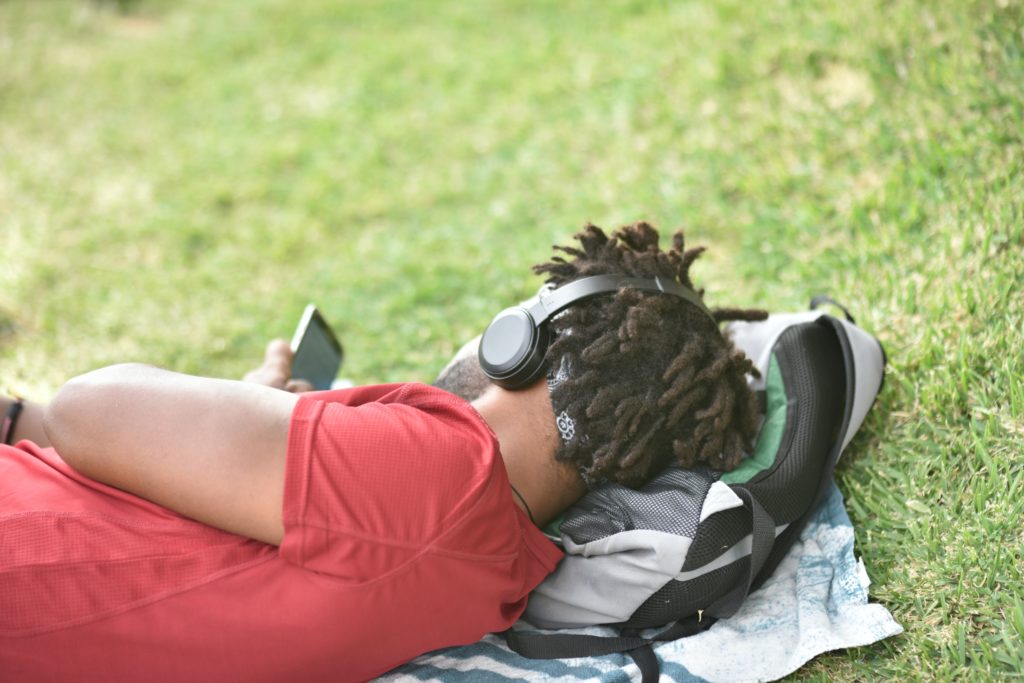Why Do Athletes Fear Time Off

The timeliness of this article is not lost on me as I’ve spent the past 10 days resting an irritated ankle after winning a trail half marathon. So, why do athletes fear taking time off?Something striking that I’ve been contemplating during this time is just how much my mindset around taking time off has changed. I’ve found myself oddly acceptant of the uncertainty and confident in my ability to return once my ankle has healed. Three years ago this would not have been my mindset around time off. I would have wallowed in sadness and been highly irritable with everyone in my life. In addition to that, I would be overcome with anxiety about “falling behind.” Working with athletes I often hear this same struggle. It doesn’t matter if it’s the off-season, recovering from injury or race, or simply a weekly rest day. Time away from training can provoke intense feelings. Not being able to take time off from training is always psychological and requires athletes to dive deep into their internal narratives. Discovering what underlying beliefs are fueling their inability to take time off is extremely helpful.
Why Do Athletes Fear Time Off
- FOMO: the fear of missing out on that group ride can run deep. Many athletes have a community that they train with. There becomes a fear of loss of social connections if they take time away.
- Identity: having a strong athlete identity can be a healthy aspect of one’s identity. The issue that arises is when an athlete over-identifies with being an athlete. They then feel that taking time off results in losing their primary sense of purpose and value in life.
- Insecurity: some athletes fear the impact that time off will have on their upcoming seasons. The uncertainty of time off can leave them throwing the science of periodized training out the window. They do this to avoid feeling anxious and uncertain.
- Eating issues/maladaptive exercise: for athletes struggling with eating disorders, body dysmorphia, and/or maladaptive exercise taking time off can disrupt their sense of control over their body leading to extreme anxiety over fear of weight or body changes.
Why Time Off Is Important
As difficult as time off can be it is important to remind athletes why time off is important. We know that time off can positively impact the body and brain leading to longevity in sport. It can also lead to increased adaptations. From a physiological perspective, time off can help the body adapt to the training that has occurred. Other benefits include avoiding plateaus and overuse injuries. Psychologically time away can give athletes the ability to continue to train at high levels while avoiding burnout. This can lead to increased enjoyment in the sport. Every day that you train both your brain and body, time off allows them both to absorb the training while taking a much-needed break before focusing on the next goal.
Confidently Taking Time Off
Once athletes understand the reason behind taking time off it is important to help them develop the skills to manage the uncomfortable emotions that they may be feeling. A few ways that athletes can build the confidence to take time off are:
- Cultivate Trust: time off produces strong emotions because it draws on uncertainty, lack of control, and identity issues. Athletes should consider each of these categories and write out how taking time connects to them. Then athletes should focus on building trust in themselves. A way I like athletes to cultivate trust is to write down one thing, from training that gives them confidence. It also gives them insight into themselves as an athlete, and as a person.
- Address Mental Health: Time off can expose mental health issues that were being masked or managed by training. If an athlete is experiencing eating or other mental health struggles then it is important to talk with a professional. Repurpose the time previously spent training into therapy and the homework given by the therapist.
- Long-term goals: Athletes should always circle back around to how time off fits into their long-term goals. Reassessing their overall why behind sport is vital to longevity. Grounding back into your why gives the time off purpose. It will increase the chance of an athlete sticking to the timeframe.
As fear-inducing as it can sound, time off is a critical pillar in the foundation of an athletic career. That time off can come from choice, injury, off-season, mental health struggles, or a myriad of other reasons. It is normal to have apprehension about taking time off. It is also essential to be able to work through the beliefs that are preventing you from resting. You want to create a new narrative that allows you to take the downtime your body and brain need. This will lead to longevity and success in sport.

Haleigh Fisher is a Licensed Professional Counselor working with athletes to help them train and live happy by helping them develop mental skills and embrace their strengths. She is a former Division I cross country athlete turned trail runner and uses her experience as a competitive athlete and mental health clinician to connect with clients and help them unlock their potential. Haleigh describes herself as a joy seeker, a trail running adventurer, a celebrator of food, an artist, and a lover of people; thrift shopping; and cupcakes.









